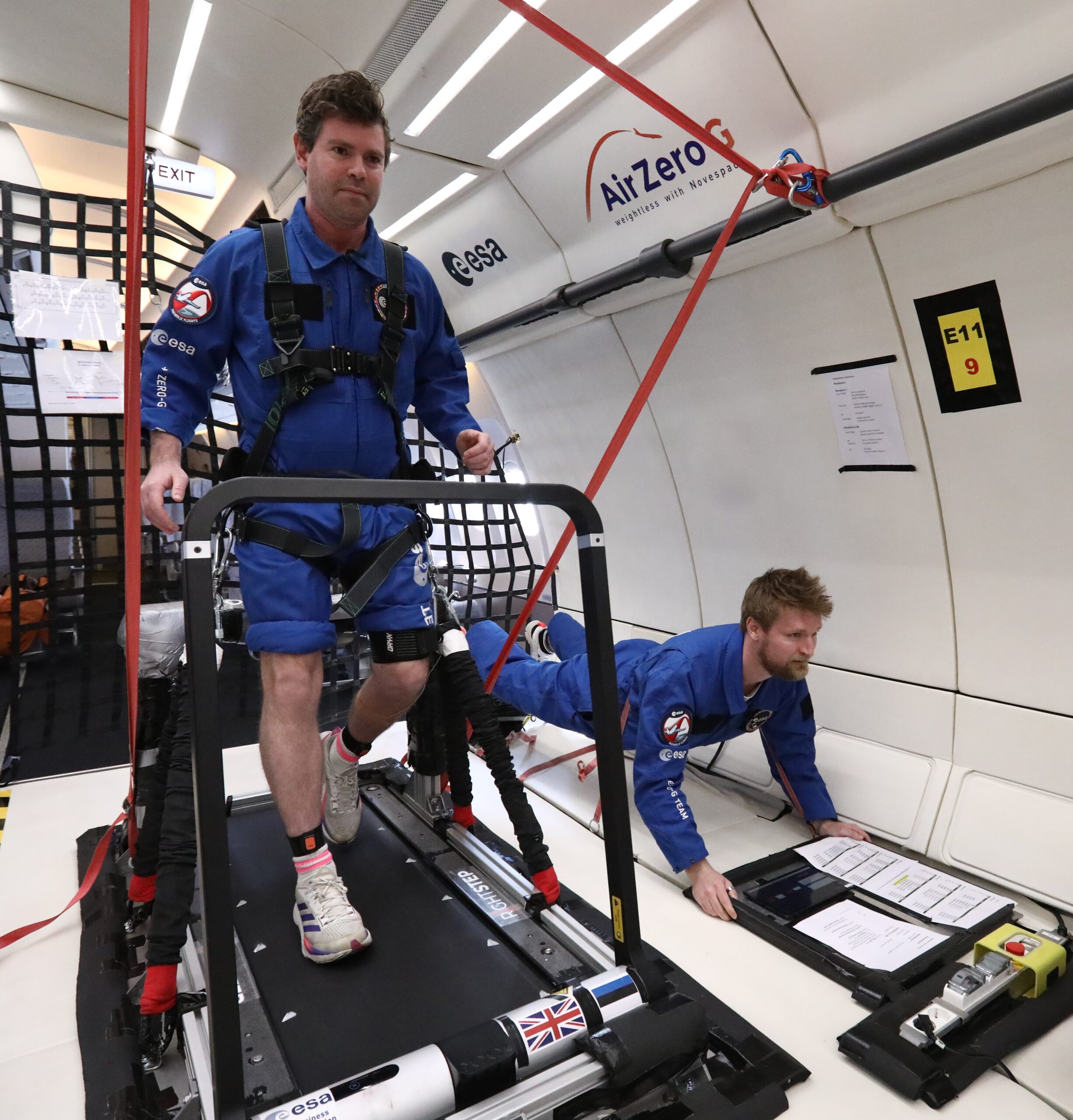When it comes to long-duration space travel, astronaut health is mission-critical. Enter Right Step, a startup dedicated to developing innovative tools for the assessment and monitoring of astronaut health, with a current focus on bone health in remote and space environments. By blending engineering expertise with a strong sense of user-centred design, Right Step is on a mission to support healthier, safer journeys beyond Earth.
The company was founded by Mike and Marcus, who bring complementary strengths to the venture. Mike is an engineer with a background in sensors, software, and biomechanics, while Marcus is an experienced innovation and strategy consultant passionate about aligning technology with real user needs.
What inspired you to launch a space tech startup? Was it a specific problem in the space industry, a breakthrough in technology, or something else?
The core of Right Step is born out of research into Osteoporosis and Bone health in clinical setting. This comes with high levels of risk making it nigh impossible to study. The challenge of bone loss in space is well documented and still poses a great risk with the desire to spend more and more time in the absence of gravity or low gravity it made sense to explore the space sector.
What have been your biggest challenges and failures so far, and what are your biggest wins? Space tech is notoriously difficult—what lessons have you learned?
Our biggest, executed win came in the form of the ESA 85th Parabolic Flight Campaign, where we built a dedicated treadmill and validated our technology. Additionally, we have recently won a contract to develop a remote monitoring solution that is the direct result of this. The main challenge is the process and cost associated with developing operationally safe and compliant devices for use in the extreme space environment. Space communities, including ESA, the Estonian Space Office and ESA BIC Estonia, have been instrumental in our progress.
What drives you to keep going, even on tough days?
There is an opportunity to understand the human body in greater detail via space environments and thus improve our life on Earth. There is a bigger picture, one much bigger than just us and the collaborations across multiple disciplines pulling together is inspiring. Plus, space is cool!
What sets your startup apart from competitors in the space industry?
We are relentless in achieving our mission. We are focussed on the task at hand but are not short of creativity and play that challenges our own approach and thinking. We are driven by the outcome and not the financial gain. Additionally it seems to have stumbled on a new way to look at bone loading and bone health that has certinaly caught the eye of the space sector’s experts.
Why did you choose to apply to ESA BIC Estonia? How has it helped you so far?
I (Mike) moved to Estonia, having met my wife and had a wonderful daughter. Right Step had only just uncovered the space opportunity, and research into Estonia’s Space community led us to the ESA BIC. The program sounded perfect for us, and Sven’s support gave us the confidence that it was the right thing. The ESA BIC gave us the kickstart we needed, along with the belief we needed and of course, the community. 15 companies in Estonia participated in our Parabolic Flight (most of them don’t even know).
What’s your vision for your startup in the next year? And where do you see it in five years?
We aim to be the go to platform for Astronaut health monitoring in both research and operational capacity. We plan to incorporate more than bone health into our offering but most importantly we are pushing to transition work done in space to healthcare. In 5 years time we will be looking after all who go to space and improving the outcomes for patients who suffer from musculoskeletal disorders.
Who do you think is the next (Estonian) space tech unicorn?
I am not sure it will be Right Step but one can dream. That said one can imagine a community living on the moon who will require health services and so why not us? I do think there are some strong companies in Estonia who operate in climate, forestry, security which may have a wider market.
Which books, podcasts, publications, and influencers in space technology or entrepreneurship do you follow and recommend to others?
This is a tough one. I tend to read scientific papers, white papers that are around the space medicine/bone topics. Both Marcus and I recently bought an Orthopaedic Surgery textbook! I guess we both read the standard books aimed at startup founders, but we don’t follow these as gospel. I did enjoy the Phoenix project, though, which is a humorous account of stifling innovation. The „jobs to be done“ articles are good. At the end of the day, you can read/watch a load of stuff, but it is your business and your philosophy that are most important. I can say we certainly steer clear of the influencer space.
What do you suggest/what advice would you give to future candidates?
One thing I think we did well (so far) is build a strong case for our business. We leveraged white papers written by the experts and strategies of key entities and aligned ourselves as best we could. We also called these experts (yes, on the phone) and had meaningful discussions with them that shaped our direction.
Over the course of our incubation period, we focused on our philosophy and what we are trying to do. This meant we could celebrate any success, regardless of how small an outsider may see it. We tend to work on a Now, Next, Then cycle, which means we can achieve things in say 3 months and be happy about it.
Adjacent to this is having a meaningful timeline that is longer term, that can is somewhat abstract but keeps the core direction and trajectory in step.
—
ESA BIC Estonia, led by Tartu Science Park in collaboration with Tehnopol, is part of the European Space Agency’s network of business incubators across Europe. It helps innovative Estonian startups bring space technologies to new markets, offering up to 60,000€ in product development support, specialised mentoring, international network access, and business development loans.


